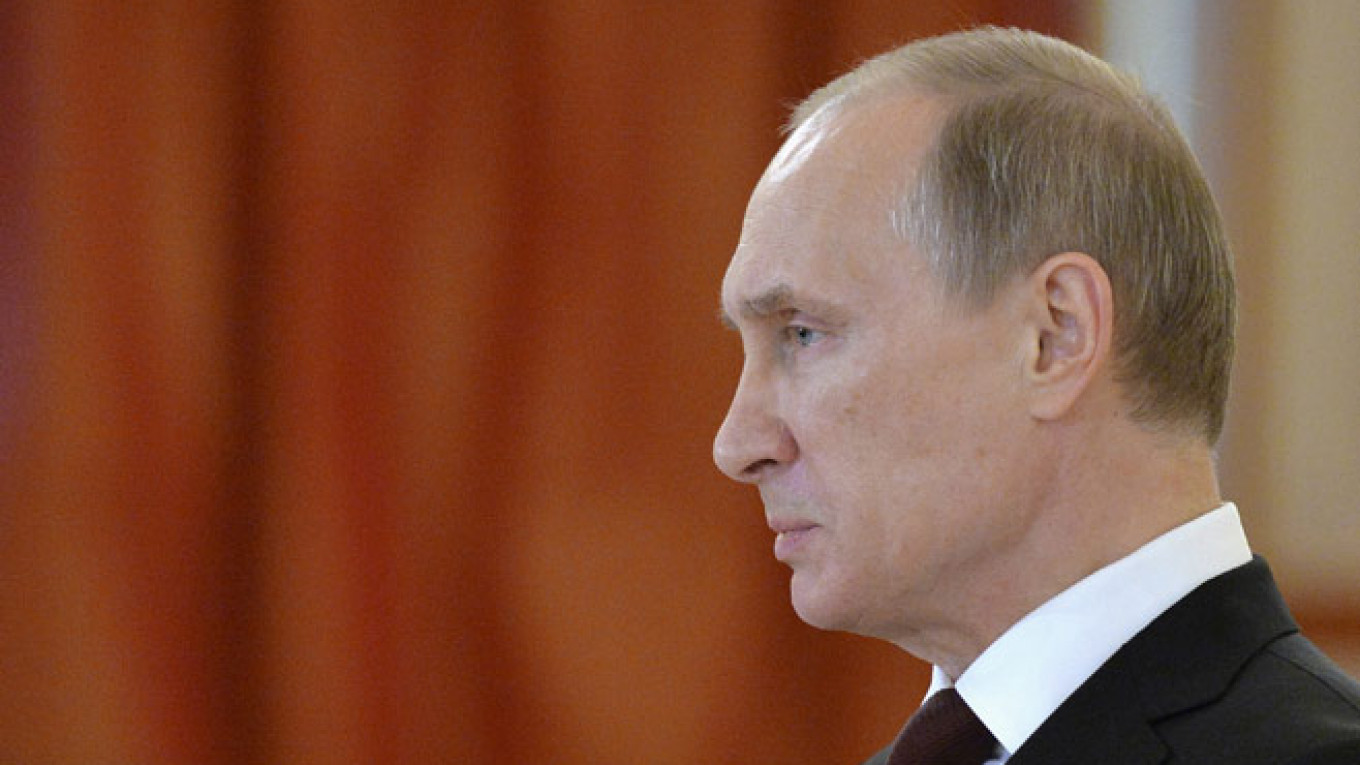After resuming its military buildup along the Ukrainian border last week, President Vladimir Putin has now taken a number of actions to step back from the brink of military intervention. He has endorsed a Ukrainian cease-fire, supported three-way talks in Donetsk between officials representing Ukraine, Russia and the OSCE, and instructed Russia's upper house to revoke his right to invade Ukraine.
For now, under threat of more comprehensive sanctions from the West, Putin may seek to achieve his foreign policy objectives in Ukraine through negotiations rather than force. This raises an important question for policy makers: what are Putin's major policy objectives in Ukraine, and can they be achieved?
NATO
From the beginning of the Maidan revolt, Western policymakers have underestimated Putin's determination that Ukraine does not join NATO. After the break-up of the U.S.S.R., Russia stood by as 15 countries in the former Soviet space — including three former Soviet republics — joined NATO. For Moscow, it is simply unthinkable that Ukraine could do the same.
Putin has made clear his decision to invade Crimea was heavily driven by a desire to block any move towards Ukrainian membership in NATO. During his annual call-in television program on April 1, he stated: "If we do not do anything, Ukraine will be drawn into NATO sometime in the future … and NATO ships would dock in Sevastopol, the city of Russia's naval glory."
Putin would do anything to block Kiev if it moved towards NATO — up to and including launching a full-scale military invasion of Ukraine — and it is inconceivable that he would sign off on any deal between Kiev and the rebels without assurances that Ukraine will never seek to join NATO or any Western military alliance.
Luckily, for Poroshenko, pursuing NATO membership is not a priority. Moreover, his recent 15-point peace plan specifically endorses changes to Ukraine's political structure through changes to the country's constitution, and so a formal commitment to neutrality could be enshrined in a new Ukrainian constitution as well. Indeed, in a March 29 statement which involved an extensive discussion about Russia's opposition to Ukrainian membership in NATO, Foreign Minister Sergei Lavrov explicitly stated that "We are convinced that the new constitution should undoubtedly formalize the out-of-bloc status of Ukraine."
This type of powerful assurance would ease Moscow's existential fear of Ukraine joining an anti-Russian military alliance, meaning that keeping Ukraine out of NATO is an eminently achievable goal for Putin.
Ukraine's Move Towards the EU
Another key Russian foreign policy priority is to prevent Ukraine from deepening its relationship with the European Union. The Kremlin wants to ensure that Russia remains the preeminent power in its so-called "near abroad," the post-Soviet political space now composed of the 12 states, minus the Baltics, that used to comprise the former Soviet Union.
Putin's emphasis on the Eurasian Union project demonstrates that Russia's definition of power in its near abroad encapsulates economic as well as military power. Ukraine's decision to drop out of negotiations and then sign a free trade pact with the EU on June 27 is a major blow to Putin's aspirations.
Putin has made clear that Russia will retaliate against the EU-Ukraine free trade agreement by imposing tariffs on Ukrainian exports to Russia. Russia will surely invent other barriers to punish Ukraine economically. These may include longer border inspections, discoveries that some Ukrainian agricultural products constitute health risks, and other creative mechanisms.
Unlike with NATO, it is difficult to see how a compromise on this issue is achievable. Poroshenko might move Putin's way on NATO, but he has made it clear that he is determined to move Ukraine towards Europe economically.
Ukraine could retaliate against exorbitant Russian import barriers by turning to international bodies such as the WTO to fight the Kremlin. It is also possible that, if a Russian-Ukrainian trade-war starts to result in significant pain to Ukraine's economy, Poroshenko would be forced to once again redefine Ukraine's economic relationship with the EU and Russia. Whatever direction events ultimately go, however, it will be significantly more difficult for Putin to prevent Ukraine moving closer to the EU, at least in the short term.
Decentralization and Changes to Ukraine's Political Structure
Both Poroshenko and Putin agree that a decentralization of power from Kiev to the regions is the right choice for Ukraine — the question is how each side defines decentralization. In a June 21 speech, Poroshenko laid out robust commitments to decentralization in the form of local elections; substantially increased local control over budgets; and broad commitments to regional autonomy to determine their cultural priorities, including guarantees for the Russian language.
Moscow, by contrast, has frequently asserted that Ukraine needs to be "federalized." Foreign Minister Lavrov in particular has argued that Ukraine's eastern regions should be able to pursue their own foreign policy and economic choices. In the Russian view, this could allow Ukraine's eastern regions to act almost as separate countries, establishing their own economic or political arrangements with Moscow independently of Kiev.
Poroshenko, of course, will never agree to "federalization a la Lavrov," nor could he politically. What Putin really seeks to achieve through federalization though, is a full veto on any fundamental issues related to Ukraine's sovereignty.
Poroshenko's version of decentralization might satisfy Putin's policy objectives regarding Ukraine's political structure. It would at least allow the Russian president to declare victory on this issue to his political constituency. Putin must understand, however, that his ideal version of "federalization" is probably not achievable. If Poroshenko accepted the Russian version of federalization, both Donetsk and Luhansk would almost certainly move to establish their own trade and security agreements with Russia — perhaps even applying to join Putin's Eurasian Union — thereby throwing the entire legitimacy of Ukraine's broader free trade agreement with the EU into question.
Putin will continue to periodically escalate and then de-escalate the crisis in Ukraine until he is satisfied that these foreign policy objectives are met. How he will define his success in meeting these objectives will be the determining factor in how long the crisis in Ukraine continues.
Josh Cohen is a former USAID project officer involved in managing economic reform projects in the former Soviet Union. He contributes to a number of foreign policy-focused media outlets and tweets at @jkc_in_dc
A Message from The Moscow Times:
Dear readers,
We are facing unprecedented challenges. Russia's Prosecutor General's Office has designated The Moscow Times as an "undesirable" organization, criminalizing our work and putting our staff at risk of prosecution. This follows our earlier unjust labeling as a "foreign agent."
These actions are direct attempts to silence independent journalism in Russia. The authorities claim our work "discredits the decisions of the Russian leadership." We see things differently: we strive to provide accurate, unbiased reporting on Russia.
We, the journalists of The Moscow Times, refuse to be silenced. But to continue our work, we need your help.
Your support, no matter how small, makes a world of difference. If you can, please support us monthly starting from just $2. It's quick to set up, and every contribution makes a significant impact.
By supporting The Moscow Times, you're defending open, independent journalism in the face of repression. Thank you for standing with us.
Remind me later.







